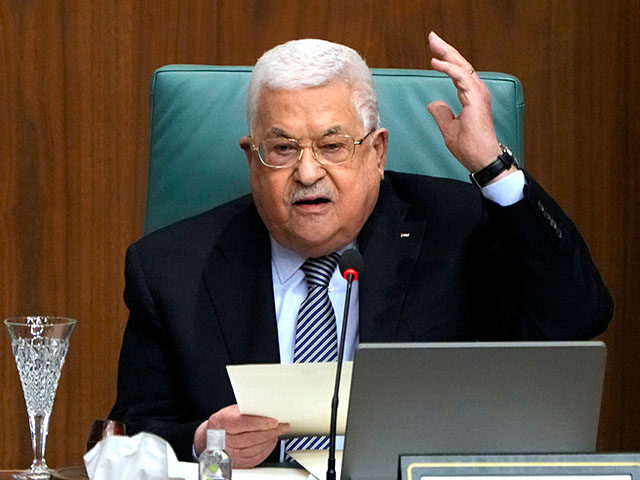“As long as I’m sitting in this chair, the Palestinian Authority, which supports, educates and finances terror, will not rule Gaza on the day after Hamas.”
So said Israeli Prime Minister Benjamin Netanyahu, reportedly, to visiting U.S. Secretary of State Antony Blinken last week. The Biden administration wants a reformed Palestinian Authority, which governs Palestinian communities in the West Bank, to run Gaza after Israel destroys Hamas. Netanyahu, and many Israelis, is opposed to that — and here is why.
The Palestinian Authority (PA) is an administration created by the Oslo Peace Accords of 1993, signed by Israel and the former terror organization known as the Palestine Liberation Organization on the White House Lawn. In 1994, the PA took control of most of Gaza — except for several Israeli settlements, and related infrastructure — as well as many Palestinian communities in the West Bank (the territory that Israel conquered after Jordan attacked it, without provocation, during the 1967 Six Day War).
The PA, run by Yasser Arafat and his political faction, Fatah, was supposed to serve as the basis for Palestinian self-governance. Under the Oslo Accords, the PA had its own armed police force. It abused that power, often imprisoning political rivals, including members of Hamas. The PA was also notoriously corrupt, siphoning off the aid money that flowed from international donors. When Arafat died in 2004, he was a billionaire on paper — ironically, with some of his money stashed in Israeli venture funds.
Nevertheless, Israel continued to negotiate with the PA toward a “final” settlement of the decades-old conflict, until Arafat walked away from a generous peace offer at Camp David in the U.S. in 2000 and launched an intifada against Israel, weeks later.
In that intifada, PA police officers used the weapons they had been provided under the Oslo Accords to fire at Israeli forces. Moreover, it became clear that the PA was using its official media, and its education system, to indoctrinate Palestinians and Palestinian children to hate Israel and to hate Jews. It soon emerged that the PA was also paying stipends to Palestinian terror convicts in Israeli prisons, and payouts to the families of terrorists who had been killed (or killed themselves) attacking Israel.
Israel was able to control the violence and suicide bombings by building a fence — or wall — in the West Bank to prevent illegal crossings. But Israeli settlements in Gaza were vulnerable to rockets and mortar attacks, which began in the latter half of 2001.
Without a negotiating partner on the Palestinian side, especially after Arafat’s death, Israel opted for a unilateral withdrawal — the so-called “disengagement” from Gaza. Israel pulled all of its civilian settlers and soldiers out of Gaza in 2005 — often with painful, albeit nonviolent, confrontations between soldiers and Israeli residents. When they left, Gaza was no longer “occupied”; Palestinians could have built a better life there. Instead, they turned it into a launching pad for rocket attacks on Israel proper.
Meanwhile, President George W. Bush’s administration, as part of its global “democracy” agenda, insisted that there be elections in the Palestinian Authority. Mahmoud Abbas of the Fatah faction won the presidential election in early 2005 (he is currently in the 19th year of his first four-year term). But in the parliamentary elections of 2006, Hamas won. The PA government found itself divided — not an uncommon scenario in a mature democracy like the U.S., but an unstable situation in the Middle East.
In 2007, Hamas staged a violent coup against the Fatah-run PA executive in Gaza, even infamously throwing Fatah members off rooftops. The terror group took full control of the Gaza Strip. That led to a blockade by Israel (and Egypt), which did not want Hamas importing weapons from Iran and other sources. (Hamas resorted to smuggling weapons through tunnels and through other methods; some of its weapons are also produced in Gaza from materials found in humanitarian aid or commercial goods.)
The PA continues to rule in parts of the West Bank. But it also continues its anti-Israel, antisemitic propaganda, and continues paying terrorists and their families in what Israel calls a “pay-to-slay” policy. In 2018, U.S. President Donald Trump signed the Taylor Force Act, named for an American victim of Palestinian terror, to block U.S. taxpayer funding of the PA until it cancels “pay-to-slay.” The PA has refused to do so; moreover, Abbas continues to make brazenly antisemitic statements in public forums.
That is why Israel does not want the PA back in charge in Gaza. It failed there the first time; it is corrupt; it incites Palestinians to hate Israelis and Jews; and it subsidizes terror. The Biden administration acknowledges all of these problems, but believes that the PA can be reformed — somehow. Netanyahu, and many Israelis, believe otherwise, and it is unlikely Israel is going to yield control of security in Gaza to any other country, now that the territory has been used to commit mass murder against Israelis.
Joel B. Pollak is Senior Editor-at-Large at Breitbart News and the host of Breitbart News Sunday on Sirius XM Patriot on Sunday evenings from 7 p.m. to 10 p.m. ET (4 p.m. to 7 p.m. PT). He is the author of the new biography, Rhoda: ‘Comrade Kadalie, You Are Out of Order’. He is also the author of the recent e-book, Neither Free nor Fair: The 2020 U.S. Presidential Election. He is a winner of the 2018 Robert Novak Journalism Alumni Fellowship. Follow him on Twitter at @joelpollak.

COMMENTS
Please let us know if you're having issues with commenting.